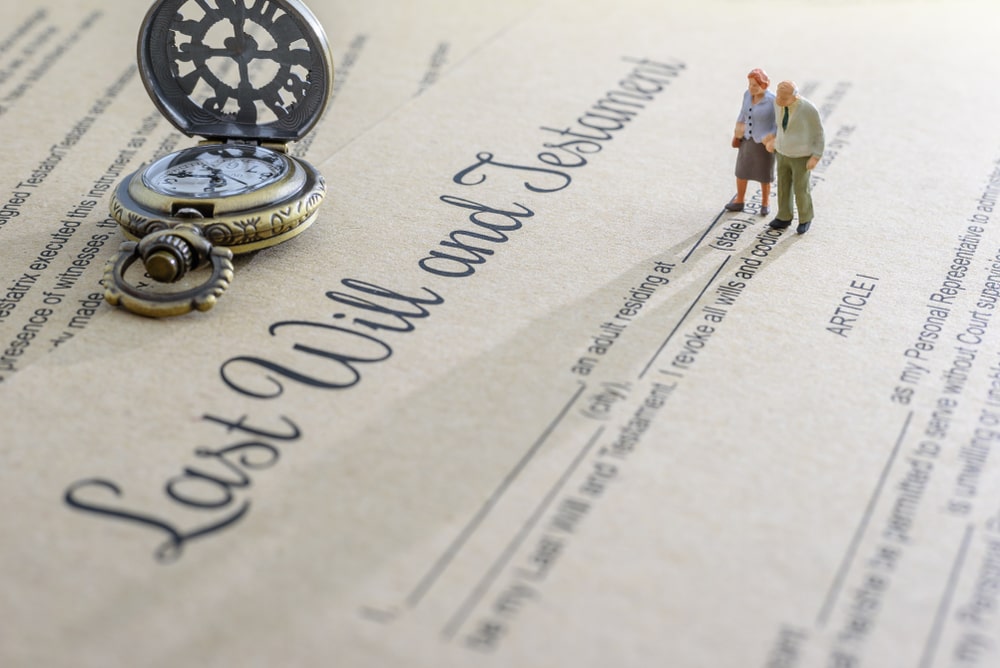Do you know how to reduce your taxes in retirement?
It might seem hard to believe at first, but there are some ways you can minimize your taxes in retirement. It all comes down to a little basic knowledge of how taxes actually work and how to make wise financial decisions.
Naturally, a lot of these depend on your financial condition, work experience, and possessions. However, there are quite a few errors that the majority of American citizens negligently make and end up having long-term negative impacts on their income.
We are here to help you out and share all the tips we know on how to save money. So, if you are retired, keep reading to find out how you can reduce your tax burden by A LOT.

Let’s start with the don’ts!
1. Not deducting taxes from social security and pension benefits
Nobody wants to enter retirement and be shocked by their tax debt.
The key thing that everyone has to be aware of is that the majority of retirement income is taxed. In addition to reporting interest, dividends, and capital gains on every non-retirement account, your pension income and Social Security benefits are also taxable.
To determine your taxable income and your tax rate, and to ensure that the appropriate amounts are being withheld, you must do a tax prognosis to have a general idea of what will happen to your income.
2. Not understanding the RMDs (Required Minimum Distributions)
Some years ago, one retired couple faced a significant penalty tax. As you can imagine, they were very sad and angry, and they had no idea that they were supposed to withdraw specific sums from their IRA.
This thing is real, and not many people know that. The agreement is that you must take distributions if you have money in a formal retirement plan, such as a 401(k), 403(b), or conventional IRA.
A calculation based on your age and your account balance as of December 31st of the previous year determines how much you must remove.
The greater amount of your remaining balance that you must remove each year increases as you become older. You risk owing a penalty tax equal to up to 50% of the amount you were meant to take if you don’t do that!
3. Not using IRAs as intended
We get it. It doesn’t seem like much fun, but the more you understand IRA regulations, the easier your retirement life will be for you. Not to mention, the more opportunities you’ll have to take advantage of deals and shifting tax laws.
Many individuals believe that having a workplace retirement plan prevents them from funding an IRA. Depending on your salary, it could or might not be the case.
You can be qualified to contribute to an IRA without even being aware of it. You might even donate on behalf of a spouse who isn’t employed. This is indeed possible, so make sure to do your research and check if you’re eligible to fund an IRA or not.

4. Not preparing your taxes for retirement
When we asked different people about their taxes, one man said that they had the option to roll over $20,000 from their IRA into a Roth IRA and pay no tax.
Unfortunately, he wasn’t aware of this benefit at the time. The sad thing is that he isn’t the only one who doesn’t know about this. For many people, this occurs often. However, with careful preparation, it is possible to prevent it.
If your taxes are prepared, your years of low income might be quite helpful. You’ll be more motivated to save for the future since you’ll be aware of where your money is going.
Moreover, you might be able to take advantage of a year with significant deductions—like the mortgage interest deduction and medical expenses—and low income by converting a portion of your IRA to a Roth IRA and paying little or no tax. Isn’t this great?
…Did you know about this one?
5. Rolling over an IRA incorrectly
Let’s suppose that you take a payout of $200,000 from a 401(k), but you don’t properly complete the paperwork. The company you’re working at deducts taxes totaling $40,000 from your money (this means 20 % of the distribution amount).
In a case like this, you must roll over your IRA within 60 days and put the remaining $160,000 into it. However, in order for the total of $200,000 to qualify as a rollover, you now need to find an extra $40,000 to put into this IRA.
Things don’t end here! You will also be required to pay an additional 10% penalty tax if you are under the age of 59 1/2 and this occurs to you. Keep in mind that when you leave a company, you have to roll over your money effectively to increase your chances of avoiding costly tax errors.
6. Lack of Control When Deciding to Withdraw Income
Even though withdrawals might not seem like a huge problem, they can be if you don’t have a good plan to help you out. Taking care of your withdrawals wisely might significantly alter your revenue. Did you spark your interest? Here’s what you should know.
One of the largest tax mistakes made by retirees, for example, is accepting Social Security benefits prior to being required to do so. They do that while delaying their withdrawals from IRAs and other retirement funds.
So what exactly makes this a tax error? You should definitely have a plan that would help you maximize your after-tax income. If you don’t use your retirement funds in the right way, you are more likely to end up paying thousands more in taxes each year than you would if you had structured your finances according to your plan.
Here are the Dos!

7. Reduce your Social Security benefit’s tax burden
…If you were looking for a reason to keep your retirement spending minimal, this is it.
You’re not required to pay any tax on your Social Security benefit if you file as married jointly and your combined income is less than $32,000.
However, let’s not forget that things are directly proportional, which means that if your salary rises, the amount of tax you pay on your Social Security payment will rise as well.
8. Paying your mortgage before retiring
Your highest monthly bill is typically your mortgage. If you’re lucky and you’re able to completely pay it by the time you retire, you’ll have more flexibility and options when leaving the workforce. Unfortunately, not many people are able to pay off their mortgage by the time they enter retirement.
9. Cut down your costs
Keeping your costs low will allow you to stay under the 15% tax bracket and also get all the benefits of multiple tax breaks. And for married people who file jointly, that means up to $70,000 after your personal exemptions and deductions.
10. Spread out your post-retirement income
As you can tell by now, it’s very important to diversify your income in the years after retirement. Social Security, pensions, rental income, taxable brokerage accounts, tax-free Roth accounts, savings accounts, bonds, and other sources of income are all options for retirees.
Moreover, you might reduce your future tax payments by keeping your taxable income below the 15 % tax level.
11. Income from dividends and long-term capital gains
Depending on your tax bracket, qualified dividend income is subject to a 0%, 15%, or 20% tax rate. If you’re able to keep your income below the 15% tax level, your dividend income won’t be taxed. Don’t forget that the same tax rate that applies to dividends is also available to long-term capital gains.
12. Distributions from traditional IRAs and 401(k)s
Traditional IRA (deductible) and 401(k) withdrawals are completely taxed. While you were working, these retirement funds reduced your tax obligation. Meanwhile, once you begin receiving distributions, they will increase them.
…If you need help with your taxes, we are here to help you! Check out this article: 11 Little-Known LEGAL Ways to Reduce Your Taxes!










